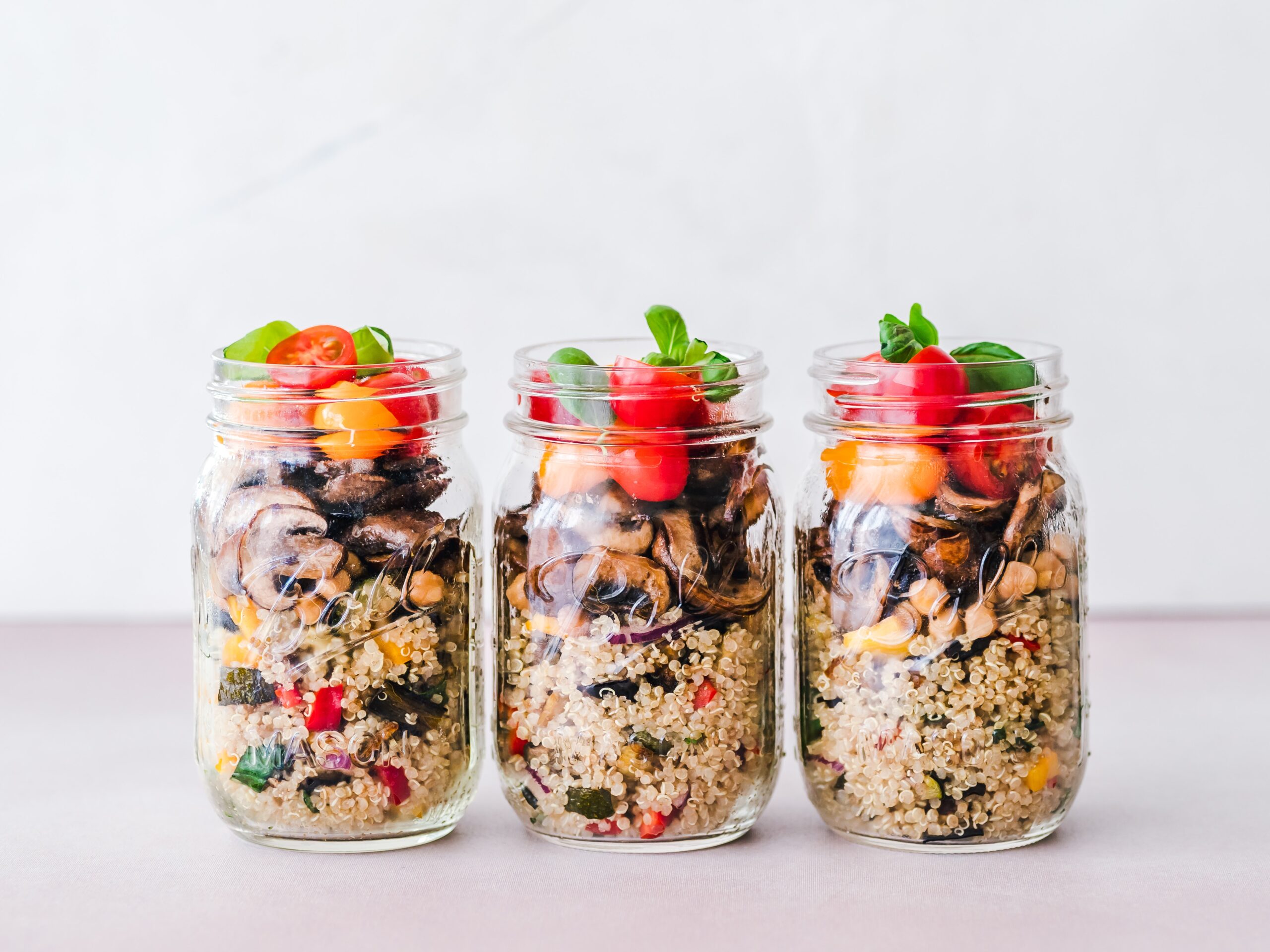An efficient approach to meal planning that actually works

This post may contain affiliate links, which means I’ll receive a little commission if you purchase through my link at no extra cost to you. Please read the full disclosure here
Do you hear how much meal planning has changed people’s lives but can’t seem to get the hang of it? Here’s an efficient approach to meal planning.
Meal planning is the act of planning/ preparing meals for a set period ahead of that time.
Most commonly, a week.
Usually, you plan the meals you are going to have before the start of that week, e.g., the weekend prior.
After planning the meals you will have for that week, you buy all the ingredients needed, prepare some of the food, pack them, and refrigerate them.
Meal planning saves you a lot of money and time and makes it easier to stay on track with whatever diet choices you are making at that point in time.
If you are reading this post, you probably have heard many people rave about how amazing and life-changing meal planning is but for some reason, you can’t seem to figure it out like other people.
You might go to the store and buy a bunch of groceries in the hopes of making meals but still find yourself eating out or ordering food as you’ve done previously.
Before you give up altogether, I have a few tips that could help you nail a system of meal planning that works for you.
A system that can help you save a lot of time while eating wholesome meals at the same time.
1. Start simple
When starting out, you are probably very enthusiastic, and looking up various tutorials online, gadgets and utensils recommended that you might complicate things.
You need a system that works for you, your habits, and your routines.
It would be best if you started with what you already have and set realistic goals for yourself.
My recommendation is to start with dinners. They are usually the most time-consuming meals compared to breakfast and lunch.
2. Choose recipes with similar ingredients or base
This tip is a game-changer!
It would save you so much effort and significantly reduce the time you need to prepare the meals.
Go through your list of recipes, and search for other exciting recipes on google, YouTube, and Pinterest.
Picking a few with similar ingredients can save you some money on groceries when you buy in bulk.
You would also prevent the waste of food items like vegetables that often go bad fast if you don’t use them up.
Also, you can prepare a base ingredient like rice or grilled chicken, for instance, for all the meals you will be adding it to once and save yourself some time.
3. Balance complex meals with simple ones
I know the term “complex meal” is quite subjective and means different things for everyone but whatever meal you find takes a lot of time and effort to make is what I am referring to.
Don’t combine only complex meals in one meal preparation as you might find that too exhausting and get discouraged.
Balance those complex meals with simple, easy-to-make ones to make the process easier.
4. Try new exciting recipes
In my opinion, being excited about the meals you are about to prepare makes the process more enjoyable and less daunting.
You don’t want to be bored with the meals you are about to make.
If you are, it would require a lot of motivation to make them and even more not to give up entirely and order or eat out instead of cooking.
When you are starting out and even when you’ve gotten the hang of things, you want to keep this process as exciting as possible.
Switch old recipes up, google recipes, and search them on YouTube; Pinterest is also a great place to look for recipes.
You would find yourself drooling over those recipe pins.
5. Make use of your weekends
The fifth point of an efficient approach to meal planning is to make use of your weekend.
As much as we love the weekends for taking a break from the demanding activities of our week, for resting and socializing with loved ones, we could also take advantage of our weekends to plan meals for the coming week.
I know a lot of cleaning, organizing, and self-care goes into our weekends already but imagine not having to worry about what’s for dinner at the end of an exhausting workday.
You can spread it out to make it a lot easier for you.
For instance, you could plan the meals, pick the recipes and get the groceries on one day, and then prepare and pack the meals the next day.
You should do whatever feels more convenient for you.
6. Take advantage of leftovers
Leftovers always come in handy when you need to make a meal impromptu.
Whether you feel hungry between meals, for lunch, or for a meal you didn’t plan for, you can easily repurpose your leftovers for a new, freshly made meal that takes a fraction of the time to prepare.
I find leftovers incredibly useful to quickly whip up a meal when I am busy and need to make a meal fast.
7. Refrigerate ingredients
Meal planning doesn’t necessarily mean that all the meals have to be cooked and packed, at least not in my opinion.
Even if all you can do is, prepare the ingredients for each meal and place them in the refrigerator, that will suffice.
Also, some foods taste better consumed as soon as they are made and not reheated.
In this case, you can prepare all the ingredients you need, clean them, chop what needs to be chopped, etc. put them in zip-lock bags and containers so when it’s time to prepare the meal, all you do is add up the ingredients and save yourself some time preparing them.
8. Try a slow cooker
This tip goes hand in hand with what I just mentioned above.
If you’ve never heard about a slow cooker before, it is an electric cooking device that prepares your food over a long period with low heat.
It can take hours.
Why would anyone want a device that cooks food for a ridiculously long time?
Well, the appeal or purpose of the slow cooker is for you to place your ingredients in it, choose your desired settings, and go about your day; you can even go for a function and come back hours later to a cooked meal.
I’m not sure how much better it can get than that.
These devices cook your food for you unsupervised.
Ready to become a meal planning pro?
There you have it, eight tips on an efficient approach to meal planning that actually works.
As I mentioned previously and want to emphasize again, when starting out with meal planning, you need to simplify things and structure them as closely to your lifestyle and routines as possible.
If you feel overwhelmed, start small, start with dinners, and you can add other meals if you like when you start getting the hang of things.






